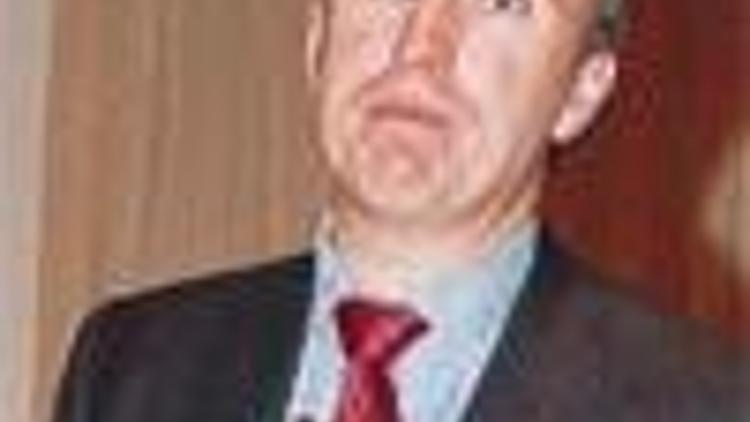’Medium-landing’ for Turkish economy
Güncelleme Tarihi:

Hürriyet Daily News
Oluşturulma Tarihi: Ocak 28, 2009 00:00
ISTANBUL - Unlike the devastating 2000-2001 economic crisis, the current global financial crisis will have a "medium-landing rather than a hard-landing" in Turkey, according to a top analyst at Merrill Lynch.
Speaking in Istanbul yesterday, Merrill Lynch's Europe, Middle East and Africa, or EMEA, section analyst Türker Hamzaoğlu predicted negotiations between Turkey and the International Monetary Fund, or IMF, would be finalized in February.
Speaking at Merrill Lynch's "2009 Economic Projection" meeting, Hamzaoğlu said the fact that Turkey might face a recession in 2009 was not a surprise. "We started to receive signals of a slowdown in the second half of 2006," he said. "So now we face the global financial crisis and the recession has become more visible."
"But the picture is not as dark as it is thought," he said. "Turkey is in better position than other emerging economies. We can talk about a medium-landing, rather than a hard landing for the economy."
On a possible IMF deal
An IMF deal would not change the ongoing economic trends for Turkey, but it would soften the process, said Hamzaoğlu. "There is not much the public sector can do because it is not a domestic crisis," he said. "The best thing the public sector can do is make a deal with the IMF. We expect the deal to be finalized in February."
"Once the IMF resources come, the economic domain will get broader for players," said Hamzaoğlu. "We may face another interest rate cut from the Central Bank because they would be able to act in a more relaxed fashion."
Turkey’s economy has been hit by both the decline in production and a contraction in export markets, he said.
"The considerable decline in capacity usage was a result of the high amount of inventories in Europe. This may result in a rise in unemployment. Non-agricultural unemployment rate may increase to 16 percent."
The decline in energy prices would affect Turkey's current account deficit positively, said Hamzaoğlu. "We expect the current account deficit, which was $42 billion last year, to decline to $21 billion in 2009."
A key year for future
Speaking at the same meeting, Gary Dugan, Merrill Lynch's EMEA region asset management director, said 2009 would be a crucial year for the future of the global economy. "The role of governments will be crucial as to how long the crisis will last," he said. "We expect governments to play a key role through tax reductions and increasing public spending in order to revitalize economies.
"The balance between getting indebted and fostering the growth through public spending is quite important," Dugan said. "Government interventions will play a critical role as to whether the world will face a short and sharp slowdown that could end in the next 12 months, or whether there will be a long and never-ending recession like in Japan in the 1990s."
Speaking at Merrill Lynch's "2009 Economic Projection" meeting, Hamzaoğlu said the fact that Turkey might face a recession in 2009 was not a surprise. "We started to receive signals of a slowdown in the second half of 2006," he said. "So now we face the global financial crisis and the recession has become more visible."
"But the picture is not as dark as it is thought," he said. "Turkey is in better position than other emerging economies. We can talk about a medium-landing, rather than a hard landing for the economy."
On a possible IMF deal
An IMF deal would not change the ongoing economic trends for Turkey, but it would soften the process, said Hamzaoğlu. "There is not much the public sector can do because it is not a domestic crisis," he said. "The best thing the public sector can do is make a deal with the IMF. We expect the deal to be finalized in February."
"Once the IMF resources come, the economic domain will get broader for players," said Hamzaoğlu. "We may face another interest rate cut from the Central Bank because they would be able to act in a more relaxed fashion."
Turkey’s economy has been hit by both the decline in production and a contraction in export markets, he said.
"The considerable decline in capacity usage was a result of the high amount of inventories in Europe. This may result in a rise in unemployment. Non-agricultural unemployment rate may increase to 16 percent."
The decline in energy prices would affect Turkey's current account deficit positively, said Hamzaoğlu. "We expect the current account deficit, which was $42 billion last year, to decline to $21 billion in 2009."
A key year for future
Speaking at the same meeting, Gary Dugan, Merrill Lynch's EMEA region asset management director, said 2009 would be a crucial year for the future of the global economy. "The role of governments will be crucial as to how long the crisis will last," he said. "We expect governments to play a key role through tax reductions and increasing public spending in order to revitalize economies.
"The balance between getting indebted and fostering the growth through public spending is quite important," Dugan said. "Government interventions will play a critical role as to whether the world will face a short and sharp slowdown that could end in the next 12 months, or whether there will be a long and never-ending recession like in Japan in the 1990s."

